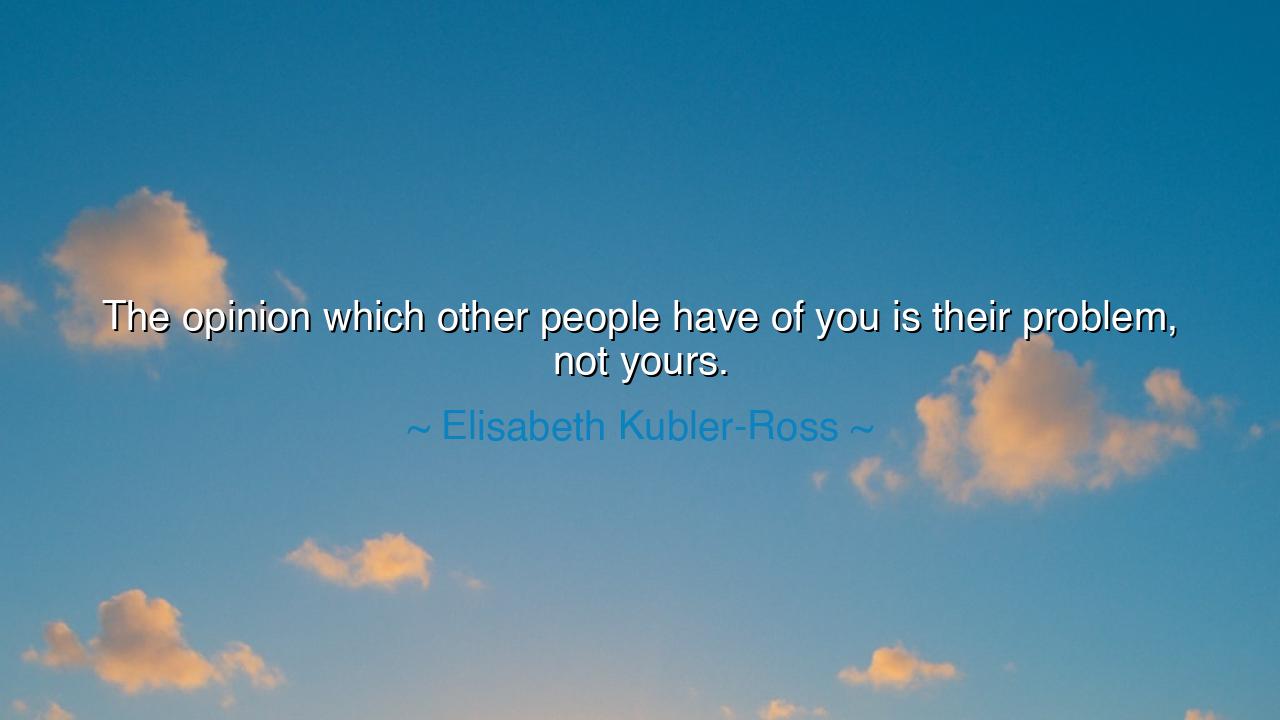
The opinion which other people have of you is their problem, not






The words of Elisabeth Kübler-Ross, “The opinion which other people have of you is their problem, not yours,” resound like a shield for the weary soul. She reminds us that the judgments of others, whether born of envy, misunderstanding, or malice, do not define the truth of who we are. The heart that anchors itself in self-knowledge and integrity is unshaken by whispers, for it understands that opinion is a reflection of the one who speaks, not of the one who is judged.
The ancients themselves proclaimed this wisdom. The Stoics taught that the power of others’ words extends only as far as we allow it to. Epictetus declared that insult is like a spark that dies unless we give it fuel. So too does Kübler-Ross remind us that to carry the weight of every passing opinion is to live as a prisoner of others’ shadows, rather than as the master of one’s own soul.
History bears witness in the life of Galileo Galilei. Branded a heretic, condemned by the Church, he was crushed by the weight of hostile opinion. Yet the truth he uncovered—the motion of the planets, the laws of the heavens—remained unshaken, for reality does not bend to human prejudice. His courage shows that others’ judgments, however powerful, cannot destroy the light of truth. What they reveal is not the weakness of the condemned, but the blindness of the condemners.
Kübler-Ross’s words also call us to freedom. If we tie our worth to the praises or condemnations of others, we will forever be tossed like a ship on stormy seas. But if we ground ourselves in the still harbor of conscience, we are untouchable. The problem lies not in our being, but in the eyes of those who choose to see through envy, fear, or ignorance. To live by their judgment is to surrender the gift of authenticity.
Let the generations remember: the soul cannot be measured by another’s gaze. Opinions are fleeting shadows, but truth endures within. To live in harmony with one’s own integrity is to be free, unchained from the expectations and distortions of the crowd. For the judgment of others belongs to them alone, but the shaping of one’s destiny belongs to the self—and to the eternal laws of truth.






AAdministratorAdministrator
Welcome, honored guests. Please leave a comment, we will respond soon